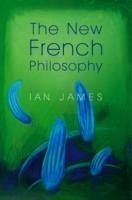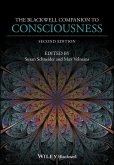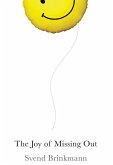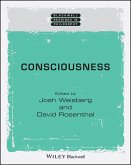Dieser Download kann aus rechtlichen Gründen nur mit Rechnungsadresse in A, B, BG, CY, CZ, D, DK, EW, E, FIN, F, GR, HR, H, IRL, I, LT, L, LR, M, NL, PL, P, R, S, SLO, SK ausgeliefert werden.
French Studies
"Definitely a welcome contribution to the task of invigorating and renewing scholarship on French philosophy, that will hopefully raise new interest in texts whose theoretical and interpretative matrix is still ongoing."
Review 31
"An all-encompassing view provided by this concise and insightful book allows us to comprehend the pressing issues of fundamentalism, evil and death, of madness and reason, of the 'questions of how something new might enter the world'."
Spectrum
"Ian James's impressive new work carves out, with precision and clarity, a distinctive new domain within recent French philosophy, revealing a varied spectrum of thinkers who share a common desire to go beyond dominant theories of signification to engage with both the materiality of the real and the question of subjectivity in the wake of structuralism. A real contribution to French intellectual history."
Christina Howells, University of Oxford
"Concise, insightful, lucidly argued, The New French Philosophy discerns how seven thinkers turn away from the linguistic and writerly paradigms of the heyday of structuralism and post-structuralism. By invigorating French thought through emphasis on materiality and the concrete, James addresses pressing political, social and aesthetic dilemmas. His highly original discussions inform, delight and energize."
Verena Andermatt Conley, Harvard University
"Ian James' The New French Philosophy provides an intelligent and accessible overview of the current state of play contemporary French philosophy. Students will welcome James' clear-minded thinking, but will also benefit from an original contribution to the developments he outlines. The book is an ideal introduction to the post-linguistic orientation of French thought."
Steven Groarke, Roehampton University "The vibrancy of French philosophy continues. Rather than succumb to the presentation of the development of thought within mere chronology, Ian James, by focusing on the centrality of materiality and the capacity of thought to enact modes of transformation, has recast the philosophical. Positing a set of relations between thinkers, James has provided a deeper and more complex version of contemporary French philosophy than has been aviable hitherto."
Andrew Benjamin, Monash University









